The National Cancer Control Program
Spearheading health sector coordination, policies, capacity building, planning, monitoring and evaluation in the fight against cancer.
Overview
The National Cancer Control Program is designed to reduce cancer incidence, mortality and improve the quality of life of cancer patients in Kenya through evidence-based strategies for prevention, early detection, diagnosis, treatment and palliation.
The program operates under the five key pillars. These include Cancer Prevention and Early Detection, Cancer Imaging, Pathology and Laboratory Medicine, Cancer Treatment, Palliative Care and Survivor ship, Advocacy, Partnerships, Coordination, and Financing, Strategic Information, Registration, Surveillance and Research.
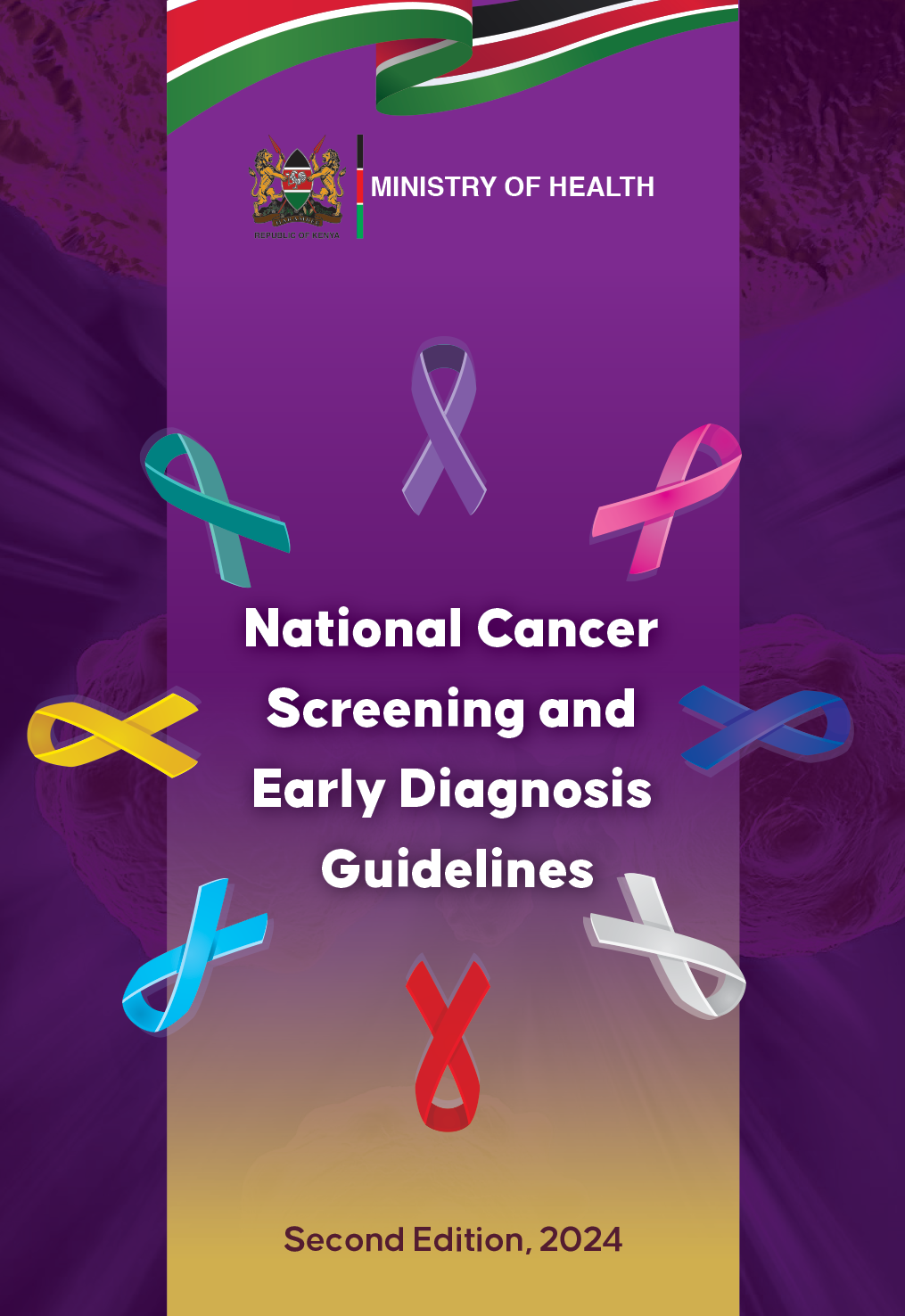

Welcome To National Cancer Control Program (NCCP)
The National Cancer Control Program (NCCP) is a Unit under the Division of Non-Communicable Diseases at the Ministry of Health in Kenya. The program engages in the development of policies, guidelines, capacity building and training materials aimed at advancing cancer prevention, screening, diagnosis, care, treatment, survivor ship and technical support to counties. Our mission is to reduce cancer-related morbidity and mortality while enhancing the quality of life for individuals affected by cancer. We strive to build a healthier nation where cancer control is a priority.
Cancer control aims to reduce the incidence, morbidity and mortality of cancer and to improve the quality of life of cancer patients in a defined population, through the systematic implementation of evidence-based interventions for prevention, early detection, diagnosis, treatment, and palliative care.
In Kenya, the implementation of the National Cancer Control Plan involves various entities and stakeholders. The Ministry through the NCCP spearheads the coordination and oversees the execution of the plan. Within the Ministry, different directorates, units and SAGAs support specific aspects of cancer control, including prevention, treatment, palliative care, and public health initiatives related to cancer.
Additionally, various governmental and non-governmental healthcare facilities, both at the national and regional levels, contribute to implementing different aspects of the plan. These facilities provide diagnostic services, treatment, and patient care.
Civil society organizations also play a significant role in implementing aspects of the plan. They often focus on raising awareness, providing support to patients and their families, and advocating for policy changes and resource allocation.
Collaboration among these entities is crucial for effective implementation, given the multifaceted nature of cancer control strategies outlined in the National Cancer Control Plan.
NCCP Focus Areas
News & Feeds
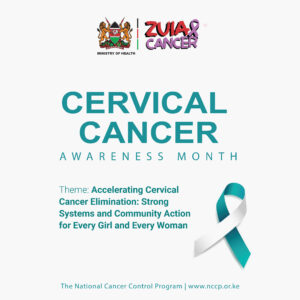
What Is Cervical Cancer?
Cervical cancer occurs in the cervix, the lower, narrow end of the uterus.
It is primarily caused by persistent infection with high-risk human papillomavirus (HPV).
Cervical cancer is preventable and highly treatable when detected early.
Prioritise HPV vaccination, regular screening, and timely treatment.
Visit your nearest health facility where screening and immunization services are available.
Stay informed, stay protected!
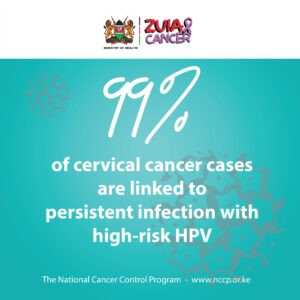
Did You Know?
99% of cervical cancer cases are linked to persistent infection with high-risk HPV.
Many HPV infections clear on their own, but some persist and can lead to cervical cancer.
Protect yourself through HPV vaccination and regular screening.
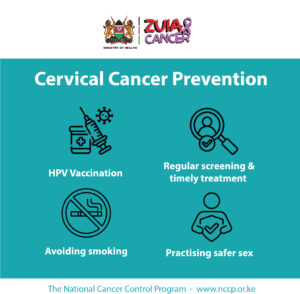
Signs and Symptoms
Cervical cancer can be prevented through:
- HPV vaccination
- Regular screening and timely treatment of precancerous lesions
- Avoiding smoking, as tobacco weakens the immune system and damages cervical cells
- Practicing safer sex, including consistent condom use
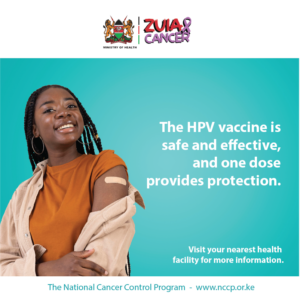
HPV Vaccine
The HPV vaccine helps prevent cervical cancer.
In Kenya, it is free in public health facilities for girls aged 10 years.
One dose provides protection.
Protect the next generation, vaccinate today.
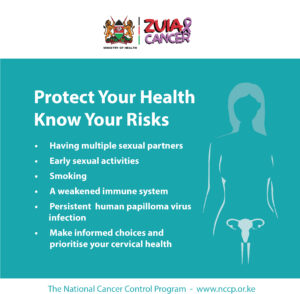
Cervical Cancer Risk Factors
Protect your health by knowing the risk factors for cervical cancer, which include: having multiple sexual partners, early sexual activity, smoking, weakened immunity, and persistent HPV infection.
Make informed choices. Prioritise your cervical health.
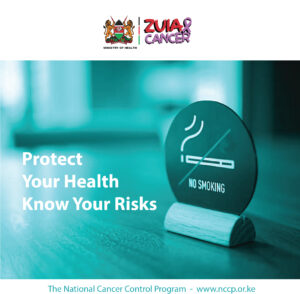
Stop Smoking
Smoking doubles the risk of cervical cancer.
Tobacco chemicals can damage cervical cell DNA and weaken the immune system, reducing the body’s ability to fight HPV.
Choose to quit. Choose health.
Our Partners








Through strong partnerships and stakeholder collaboration, our impact extends across all 47 counties. This broad reach has been instrumental in expanding cancer screening programs and improving access to care for patients nationwide.
Head Office
Ministry of Health
Division of National Cancer Control Program
P.O. Box:30016–00100, Nairobi.
Email: headnccp@gmail.com